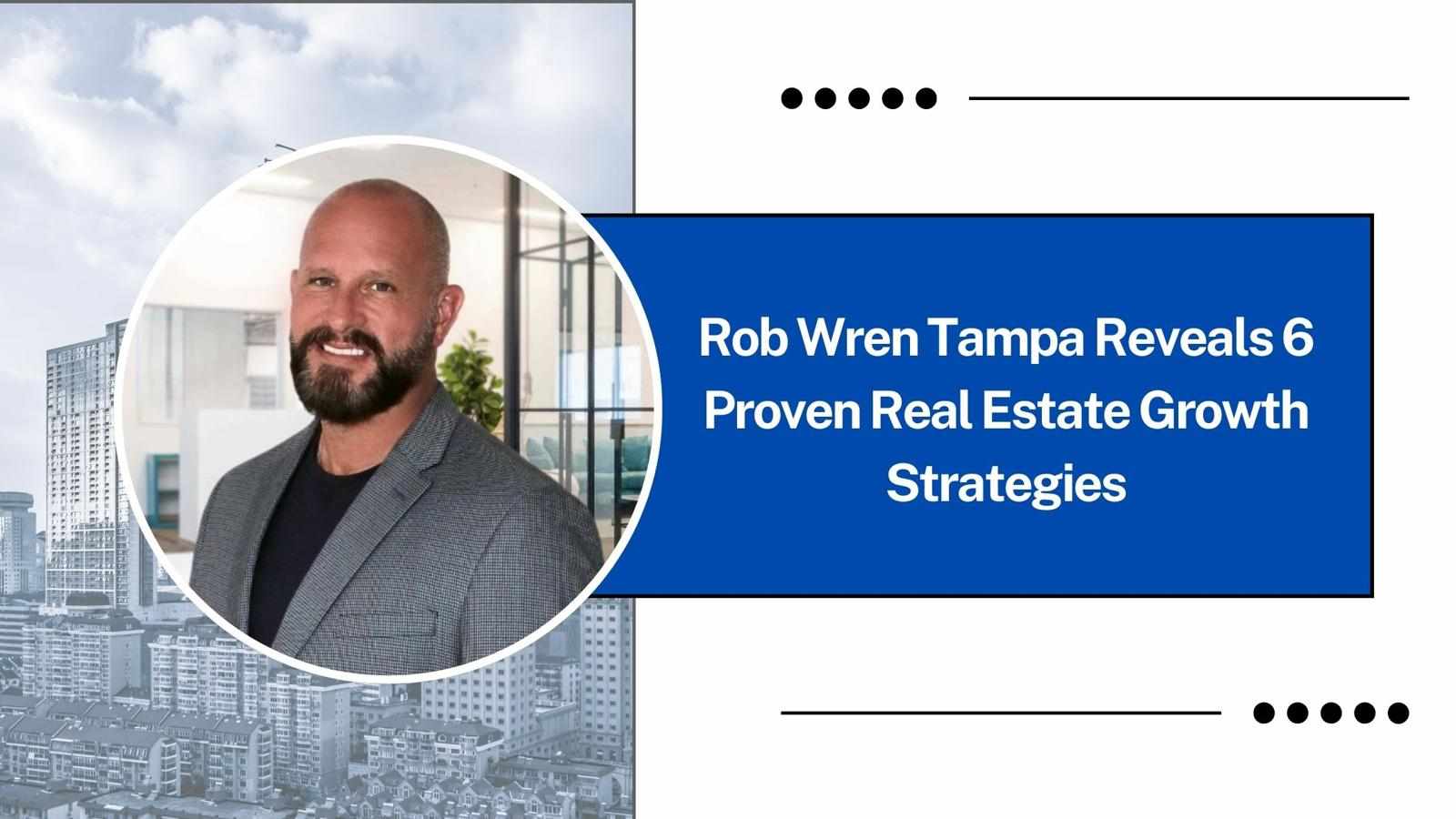
Rob Wren from Tampa is a real estate expert who helps others get started in the field. With years of hands-on experience, Rob Wren shares 5 simple tips to start real estate investing. He believes real estate can be a strong path for those who take small, smart steps. His tips focus on learning the basics, understanding the local market, starting with simple goals, making clear plans, and connecting with the right people. By following these steps, anyone can build a strong start in real estate.
1. Understand How Real Estate Works
Understanding how real estate works is the first step before taking any action. This includes knowing the difference between property types. Basic terms, steps, and strategies must be clear before moving forward. Without a strong understanding of the basics, it becomes difficult to make smart decisions.
Having basic knowledge helps build confidence. It reduces the chance of rushing into poor choices and gives better control in future steps. This also sets the stage for learning more advanced topics over time. A clear start makes the rest of the journey smoother. Each decision becomes easier with strong basic understanding.
2. Focus on One Clear Starting Point
Real estate offers many paths, but not all are right for everyone. Picking one area to focus on allows time and energy to go in a clear direction. This might include buying property to hold, fixing properties to improve their value, or exploring land options. Staying focused helps reduce confusion and builds skill in a specific area. Jumping from one type of property to another too soon can lead to poor results.
A focused start also leads to better learning. Studying one area at a time builds stronger knowledge and helps spot better deals. This creates better results over time and keeps the path clear and steady. Picking one starting point creates structure and sets the tone for the whole journey in real estate.
3. Begin With Manageable Goals
Beginning with small goals makes real estate easier to handle. Trying to do too much in the early stages can cause stress or confusion. A single property or a short-term goal can help build real-world experience. Simple steps also help avoid mistakes that can happen when things feel overwhelming. Growth happens faster when things stay simple at the start.
Small beginnings also allow time to learn from each step. Each property handled brings lessons and skills that can be used in the next one. Starting small gives room to adjust, fix mistakes, and get better over time. It keeps the journey steady and helps build strong habits for the future.
4. Study the Market Before Taking Action
Research is a key part of success in real estate. Knowing the location, market trends, and local rules makes a big difference. Research helps avoid problems and points toward better choices. Before doing anything, time should be spent looking at facts and details. Making decisions based only on feelings can lead to regret.
Good research also builds confidence and trust in the choices made. It shows which steps are smart and which should be avoided. Looking at market prices, nearby properties, and growth areas brings helpful knowledge. The more time spent learning about the property and area, the better the results will be.
5. Develop Consistent Real Estate Habits
The way real estate is handled in the beginning sets the tone for the future. Getting into the habit of tracking progress, setting goals, and reviewing decisions can help improve over time. Organization is key. Keeping clear records and following up on every task adds to better control. These habits help reduce stress and make room for long-term success.
Strong habits also help build discipline. They keep every part of the process clear and repeatable. Over time, these habits make every project easier to manage. With the right habits in place, there is less risk of confusion and more chances of growth. A steady system turns real estate into a repeatable path.
Conclusion
Starting in real estate becomes easier by following clear and simple steps. Learning the basics, focusing on one area, starting small, researching well, and building strong habits all support long-term success. These steps reduce mistakes and build a strong foundation. Following this path can lead to steady progress and growth in the field.












Write a comment ...